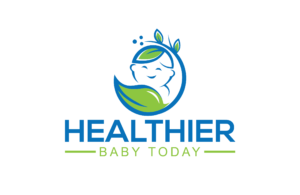The journey into motherhood is an adventure filled with decisions, and one of the first choices many new parents face is breastfeeding VS formula feeding. Each path has its benefits and considerations, and making the right choice for you and your baby is a personal decision. Let us look at the advantages of breastfeeding and offer helpful tips for those embracing formula feeding, aiming to empower parents to make informed choices that align with their unique circumstances.
The Wonders of Breastfeeding

Nutritional Prowess
Breast milk is often hailed as the gold standard of infant nutrition. It contains a harmonious blend of proteins, fats, vitamins, and antibodies perfectly tailored to meet a baby’s evolving needs. The benefits of breastfeeding extend beyond essential nourishment, as breast milk adapts its composition to support the baby’s immune system, aiding in preventing infections and diseases.
Bonding Bliss
The act of breastfeeding is a profound bonding experience between mother and baby. The skin-to-skin contact, the rhythmic suckling, and the comfort the mother provides create an emotional connection beyond mere nourishment. Breastfeeding fosters a sense of security and closeness, contributing to the emotional well-being of both baby and mother.
Digestive Delight
Breast milk is gentle on a baby’s delicate digestive system. Its composition is easily digestible, reducing the likelihood of constipation and other gastrointestinal issues. The benefits of breastfeeding extend to the comfort it provides to a baby’s tummy, minimizing discomfort and promoting a healthy digestive experience.
Customized Nutrition
Breast milk is a dynamic fluid that adapts to the baby’s specific needs at different stages of development. As the baby grows, the composition of breast milk changes, providing tailored nutrition that meets evolving nutritional requirements. This adaptability showcases the unique benefits of breastfeeding in supporting optimal growth and development.
Cost-Efficient and Convenient
From a practical standpoint, breastfeeding is cost-efficient and convenient. It requires no preparation, sterilization, or additional expenses associated with formula feeding. The benefits of breastfeeding include the simplicity of always having the perfect meal on hand, delivered at the right temperature, and ready whenever the baby is hungry.
Navigating Formula Feeding – Breastfeeding VS formula feeding

Choosing the Right Formula
For parents opting to formula-feed, the first step is choosing the right formula for their baby. Various options include cow’s milk-based, soy-based, and hypoallergenic formulas. Consulting with a pediatrician can help determine the best choice based on the baby’s needs and potential allergies or sensitivities.
Maintaining Sterile Practices
Proper hygiene is crucial in formula feeding. Always wash hands thoroughly before preparing formula and use sterilized bottles, nipples, and utensils. Following safe practices helps reduce the risk of infections and ensures that the baby receives a clean and safe source of nourishment.
Establishing a Feeding Routine
Creating a consistent feeding routine benefits formula-fed babies and their parents. Establish feeding times to structure the baby’s day and help regulate their appetite. This consistency contributes to a sense of predictability and security for the baby.
Monitoring Baby’s Intake
Unlike breast milk, the volume of formula intake can be measured precisely. Parents can monitor the baby’s information more accurately, ensuring they receive the appropriate nutrition. Regular weight checks and communication with the pediatrician help track the baby’s growth and make any necessary adjustments to the feeding plan.
Creating Bonding Moments
While the physical act of feeding is different, formula feeding also offers opportunities for bonding. Hold the baby close during feedings, make eye contact, and engage in gentle caresses. These moments of closeness contribute to emotional bonding and create a nurturing environment for the baby.
Balancing Work and Feeding Choices

Breastfeeding and the Workplace
For mothers returning to work, navigating breastfeeding VS formula feeding can present challenges. However, many workplaces now recognize the benefits of breastfeeding and provide accommodations for pumping or breastfeeding breaks. Open communication with employers and understanding workplace policies can help mothers balance their professional and breastfeeding responsibilities.
Formula Feeding and Flexibility
Formula feeding offers flexibility for mothers who may face challenges with breastfeeding due to work commitments or personal preferences. Sharing feeding responsibilities with partners or caregivers provides a sense of balance and shared parenting responsibilities.
Exploring Breastfeeding Benefits

Immune System Boost: Breastfeeding VS Formula Feeding
One of the standout breastfeeding benefits is its impact on the baby’s immune system. Breast milk is rich in antibodies and immune-boosting substances that help protect the baby from infections and illnesses. This immune support is especially crucial in the early months when a baby’s immune system is still developing.
Brain Development
Breast milk contains essential fatty acids for brain development, including DHA (docosahexaenoic acid) and ARA (arachidonic acid). These nutrients are vital in supporting cognitive growth and enhancing brain function. The benefits of breastfeeding extend beyond physical health, contributing to the baby’s overall well-being and intelligence.
Reducing Allergy Risks
Research suggests that breastfeeding may help reduce babies’ risk of allergies and allergic reactions. The unique composition of breast milk, including immunoglobulins and other protective elements, provides a shield against common allergens. For parents with a family history of allergies, breastfeeding offers a natural and preventive approach.
Emotional Well-being
Breastfeeding goes beyond physical nourishment; it plays a crucial role in nurturing the baby’s emotional well-being. The close physical contact, eye contact, and skin-to-skin interaction during breastfeeding contribute to the baby’s sense of security and attachment. These emotional benefits also extend to the mother, fostering a deep bond and promoting maternal mental health.
Postpartum Benefits for Mothers
Breastfeeding benefits extend to mothers, aiding in postpartum recovery. The release of oxytocin during breastfeeding helps the uterus contract, reducing postpartum bleeding and promoting a faster recovery. Additionally, the bonding experience during breastfeeding enhances maternal confidence and fosters a sense of fulfillment.
Navigating Formula Feeding with Confidence

Choosing Formula Wisely
Formula feeding, while different from breastfeeding, provides a viable and nutritious alternative. When selecting a formula, consider the baby’s needs, potential allergies, and any guidance from the pediatrician. Opt for iron-fortified recipes to ensure adequate iron intake, which is crucial for the baby’s growth and development.
Hydration Awareness
Formula-fed babies may need more water than breast milk, especially in hot climates. Pay attention to signs of dehydration and offer small sips of water between feedings if necessary. Maintaining proper hydration is essential for overall well-being and supports healthy kidney function.
Responsive Feeding
Formula feeding allows parents to quantify the baby’s intake more precisely. However, it’s crucial to adopt responsive feeding practices. Pay attention to hunger cues, feed on demand, and hold the baby close during feedings to promote bonding. Building a responsive feeding routine contributes to a positive and nurturing experience for both baby and parent.
Seeking Support
Feelings of guilt or societal pressure can sometimes accompany Formula feeding. Parents need to seek support from healthcare professionals, support groups, or friends. Establishing a supportive network and confidently embracing formula feeding contributes to a positive feeding experience.
Balancing Bonding
While the physical act of feeding may differ, formula feeding provides ample opportunities for bonding. Hold the baby close, maintain eye contact, and engage in soothing interactions during feedings. These moments of connection contribute to emotional bonding and create a nurturing environment for the baby.
Breastfeeding VS Formula Feeding
In the grand tapestry of parenting, the choice breastfeeding VS formula feeding feeding is but one thread. Each approach comes with its unique benefits, challenges, and joys. Whether breastfeeding or formula feeding, what matters most is the love, care, and nourishment parents provide to their little ones.


